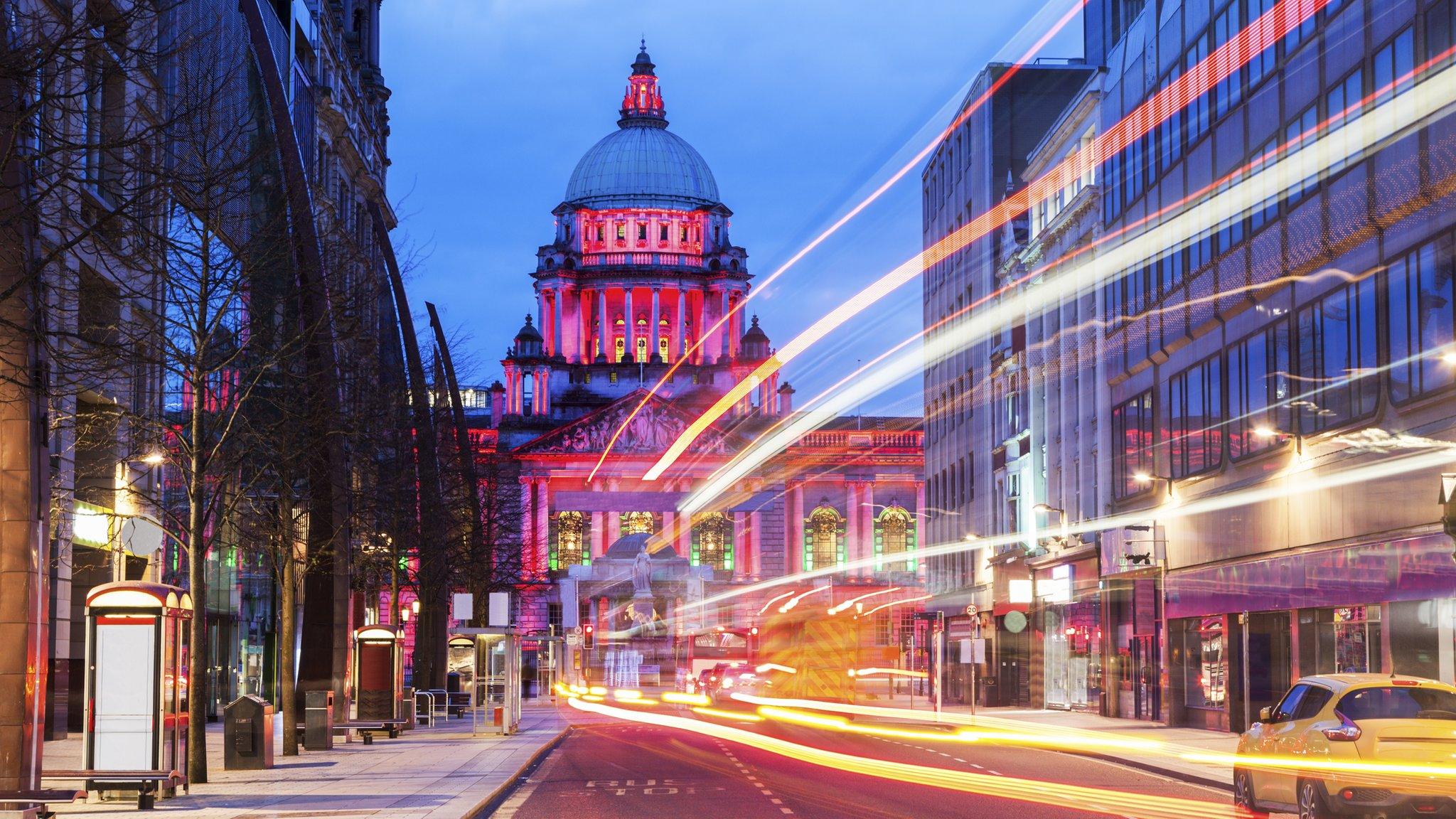Can a 'night tsar' boost Belfast's nightlife?
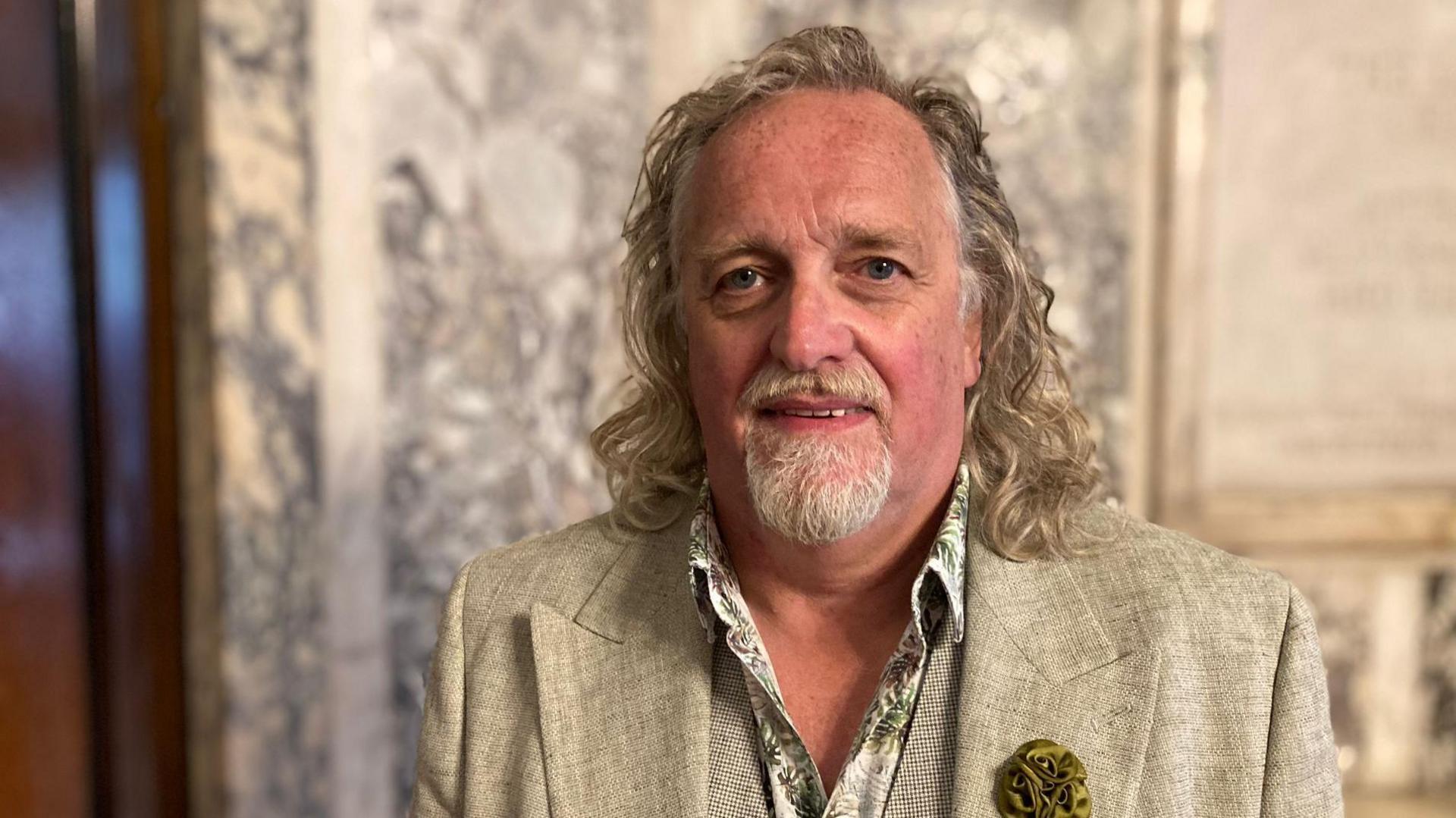
Michael Stewart has more than three decades of experience in the hospitality industry
- Published
Belfast is getting its first 'night tsar' in an effort to boost the night-time economy in the city centre.
Hospitality operator Michael Stewart has been appointed by three organisations set up to help develop the central city's economy, Belfast One, Linen Quarter BID and Destination CQ.
Like many cities, central Belfast suffered a downtown during the Covid-19 pandemic.
The businessman will be working with bars, clubs, transport operators, restaurants, police and volunteers.
What is a 'night tsar?'
The two-year honorary role is funded by Belfast's three business improvement districts and follows similar appointments in other cities such as London, Edinburgh and Manchester.
Mr Stewart, who has more than three decades of experience in the hospitality sector, said he took on the £12,000 per year role because he had a passion for the city.
However, he said he will have "no powers", and that the role will focus more on advocating and lobbying for change.
"I was Belfast Chamber president during the Covid years, I do this for the passion, not for the money," he added.
"This is a part, part, part-time role, but I will give it a lot of time and effort.
"It's an advocacy role, the three key words are communicate, advocate and network."
Mr Stewart added that one of his main priorities would be night-time transport.
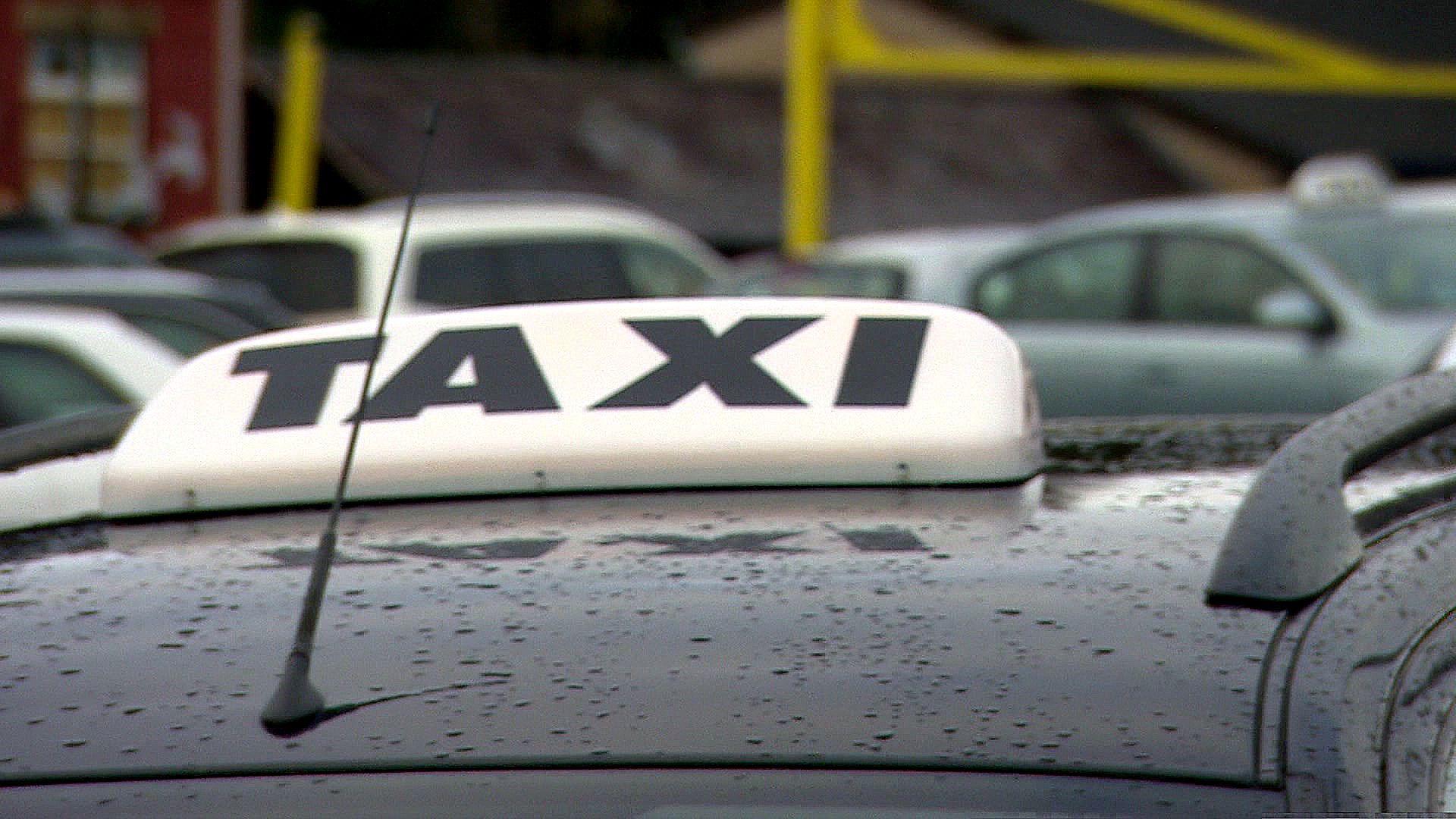
Taxi companies have struggled to retain drivers in Belfast
'We need more drivers'
Since the Covid-19 pandemic taxi companies have struggled to retain drivers.
Stephen Anton, the manager of Fonacab, said any move to co-ordinate transport was a good thing.
"There are many factors that influence late night transport, we only play one small part of that," he added.
"The root problem is a lack of drivers, we just need more drivers to cope with high demand at all times
"We would ask that people do not double or triple book taxis and waste journeys, Michael can advocate for things like that."
Mr Stewart said he would work with Fonacab and Valucab in lobbying the Department for Infrastructure for changes to legislation to support an increase in driver numbers.
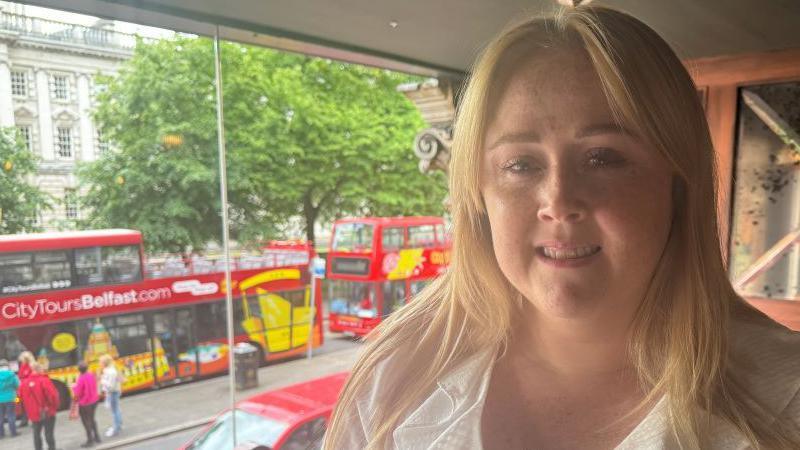
Louise Hughes said patrons often struggle to find transport to get home after a night out
Louise Hughes, who manages city centre bar Hell Cat Maggies, told BBC News NI that people tended not to stay in the bar after 23:00 BST.
"The last bus is 23:00 and taxis are sparse, it would be fantastic if something was done to encourage people to stay out later."
Getting home is also a issue that affects hospitality workers.
"Even the staff do not want to stay to the end of the shift if they don't drive with a fear of not getting a way home," she added.
"We would sometimes close early on a Friday because people have to leave on the last bus so the pub empties."
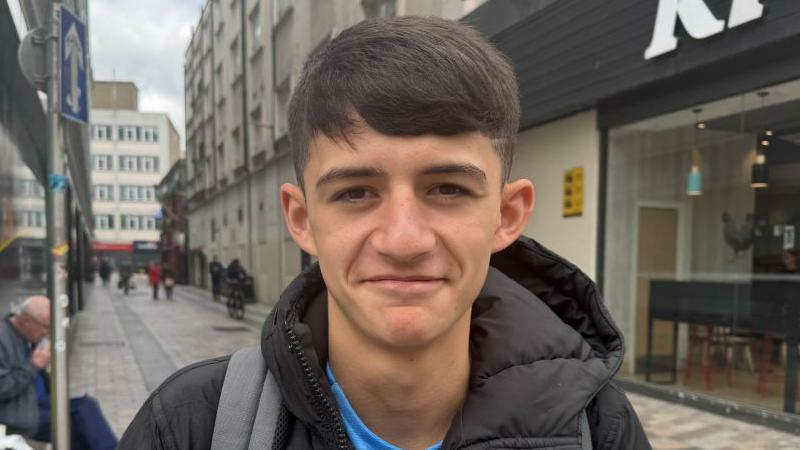
Student Jay Kennoway welcomes any effort from the first night czar
Student Jay Kennoway said he had to walk two hours to get home from a night out.
"Taxis are very expensive which would make you reconsider going on a night out," he added.
"It is great that someone is taking on a role to try and tackle transport issues in the Belfast area, I am 19 and I don't want my night out to end because I know I can't get home."
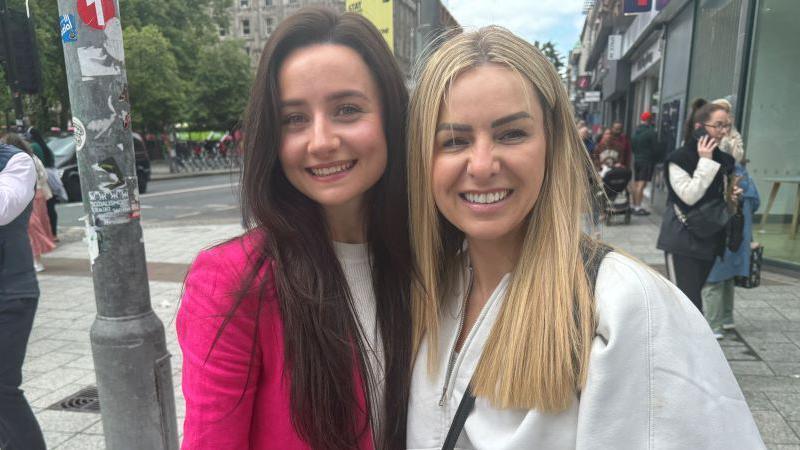
Kelly Craft (right) says she is put off going into Belfast at night
Kelly Craft from Moira said the availability of transport affects her night time social life.
"I would normally try get the last train or organise a lift with family or friends," she added.
"If this can help get people in and out of the city it will make a great impact, it will allow people to stay out later."
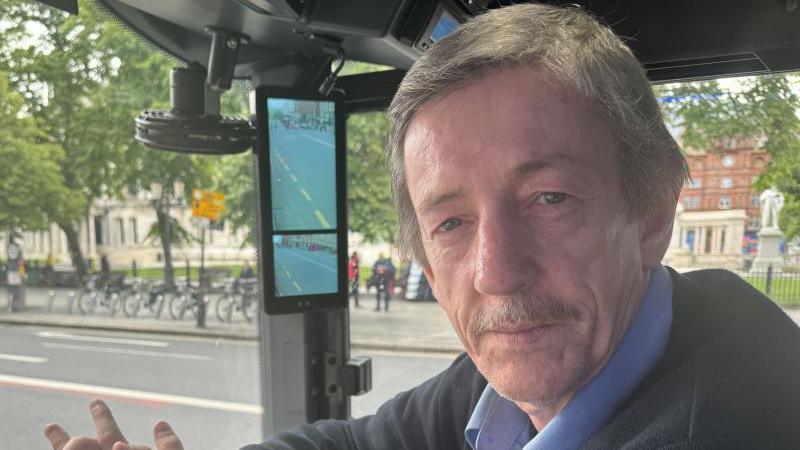
Bus driver Francis Hughes said he had concerns about working later
Mr Stewart said he was also in contact with Translink which is an "important part of the jigsaw to any late night economy", referring to the success of late-night buses over the last two Christmas periods.
Translink bus driver Francis Hughes told the BBC he was concerned about the impact of a later service.
"As a bus driver this could mean we would have to work later - maybe to two or three," he added.
"This would be unsuitable for us, we need a social life and we have families."
Mr Stewart added:
"This role provides a unique platform working with key partners to address critical issues impacting our city centre, ensuring it remains a vibrant and dynamic destination after hours," he said.
- Published25 May 2024
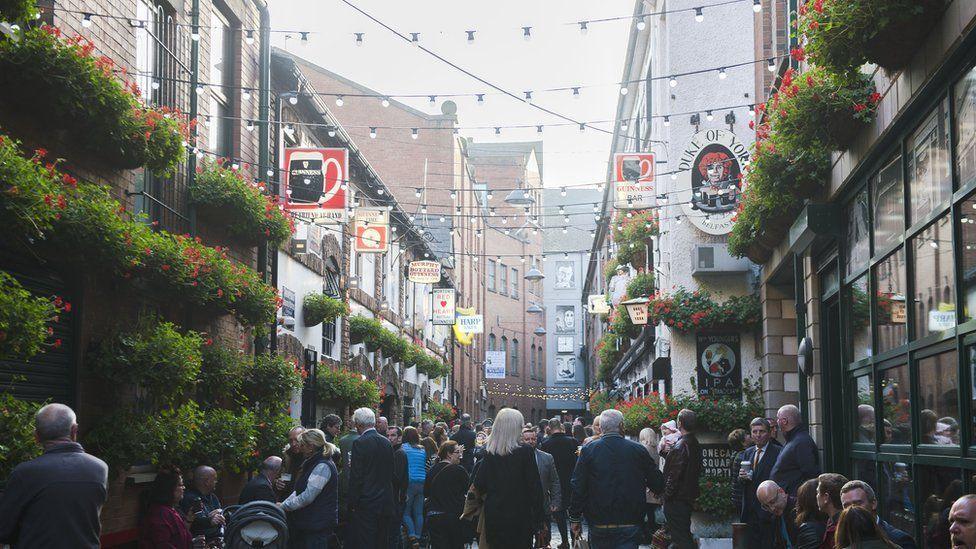
- Published4 January 2024
